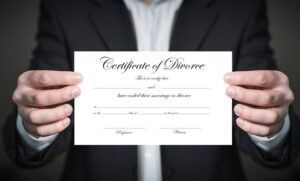
Protecting Your Business with Life Insurance
For small business owners, a sudden death or disability can put a company at risk, leaving partners, employees and family members struggling to manage operations. Protecting your business with life insurance is critical. It serves as a financial safety net, helping businesses cover debts, maintain cash flow and ensure a smooth ownership transition in case of an owner’s passing.
Why Life Insurance Is Essential for Business Owners
Unlike traditional employees, business owners do not have employer-provided life insurance benefits. Without a plan in place, unexpected loss can lead to:
- Financial strain on surviving family members who may inherit business debt
- Difficulties in succession planning, leaving employees and partners uncertain
- A forced sale of the business to cover liabilities or taxes
Owners can protect their assets, partners and loved ones by incorporating business-focused life insurance policies.
Types of Life Insurance for Business Owners
1. Key Person Life Insurance
A key person insurance policy covers the loss of an essential employee or owner whose expertise, leadership, or financial contributions are critical to business success.
- The business owns and pays for the policy
- If the insured person dies, the company receives the payout
- Funds can be used to cover lost revenue, hire a replacement, or settle business debts
This policy is essential for small businesses where one person drives most of the revenue.
2. Buy-Sell Agreement with Life Insurance
A buy-sell agreement funded by life insurance ensures a smooth ownership transition if one partner dies or becomes disabled.
- Each partner owns a policy on the other’s life
- If a partner passes away, the surviving owner(s) receive funds to buy the deceased’s share
- Prevents the business from falling into legal or financial limbo
This arrangement provides stability for the company and fair compensation for heirs without forcing them into business operations.
3. Term vs. Permanent Life Insurance for Business Owners
- Term Life Insurance: Provides coverage for a set period (e.g., 10, 20, or 30 years) and is affordable. Ideal for covering temporary business loans and obligations.
- Permanent Life Insurance: Offers lifetime coverage with a cash value component. It can fund succession plans or provide liquidity for estate taxes.
Business owners should assess their specific needs to determine the right coverage type.
How Life Insurance Helps Business Continuity
1. Covering Business Debts and Loans
Many small business owners take on significant personal debt to grow their companies. If an owner dies, these debts do not disappear. Life insurance can help:
- Pay off outstanding business loans and protect assets
- Prevent creditors from claiming company property
- Ensure that surviving family members are not burdened with financial obligations
2. Providing Financial Stability for Employees and Partners
A business without a contingency plan can quickly lose employees and clients. Life insurance provides:
- Cash flow to continue payroll and operations
- Stability to retain key employees during the transition
- Security to keep the business running smoothly
This protection reassures employees and investors that the company can survive unexpected losses.
3. Estate Planning and Tax Benefits
For business owners with significant assets, life insurance can help cover estate taxes, preventing the need to sell off parts of the business. Benefits include:
- Liquidity to pay taxes without affecting operations
- Tax advantages when structured correctly under estate planning laws
- Smooth transfer of ownership without financial strain on heirs
Proper planning ensures that a business remains an asset for future generations.
Secure Your Business’s Future with Smart Planning
Life insurance is a critical tool for protecting small businesses, ensuring that owners, employees and family members are financially secure in the event of the unexpected. If you would like to learn more about life insurance and estate planning, please visit our previous posts.
Reference: Thrivent (Nov. 2, 2022) “How Life Insurance Can Help Protect Your Small Business”
Photo by Tim Mossholder














